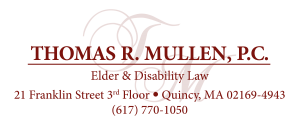How are Supplemental Needs Trusts Defined?
What items and expenses can be distributed?
Distributions ‘Supplement’ but do not Replace Assistance.
Distributions from a Supplemental Needs Trust cannot be made on behalf of the Beneficiary if the effect of such distribution is to replace, or to disqualify a Beneficiary from receiving Government Assistance. The Trust asset is available only to the Beneficiary as only the Trustee chooses or directs. The money in the Trust cannot be used for any other family members. The Trustee must refuse any payment request from the Beneficiary for services for which any public agency has the obligation to provide.
Examples of Allowable Distributions: Appropriate Non-support payments on behalf of a beneficiary include but are not limited to, payments for any of the following purposes:
1) medical, dental, and diagnostic work and treatment for which there are no available private or public funds;
2) medical procedures, even though they may not be medically necessary or life saving;
3) differentials in cost between housing and shelter for shared and private rooms in institutional settings;
4) supplemental nursing care, rehabilitative and/or occupational therapy services;
5) care appropriate for a beneficiary that assistance programs do not otherwise provide;
6) expenditures for travel, companionship, and other expenditures that will improve the quality of the Beneficiary’s physical, emotional, psychological, and or spiritual health.
See the Following List on the next page for a more detailed account of allowable and disallowable items.
List of Supplemental Needs Allowable & Disallowable Expenses Which May Be Provided to the Beneficiary Only and No Other Family Members
Appliances, Washer/Dryer, Refrigerator, Microwave, etc Automobile, Insurance, Gasoline and Repairs/Maintenance
Cable T.V.
Camps, Day or Overnight
Cell and Telephone Services
Charlie Cards
Chiropractic Therapy
Clothing
College Tuition, Books, Room & Board
Computer & Software, Tablets, Smart Phones, etc.
Credit Cards
Cruises
Dental Care
Elective or Cosmetic Surgery
Entertainment Expenses – Movies, Baseball, Football (Sports of All Kinds) Concerts, Plays, Museums, etc.
Eyeglasses/Contacts
Facial Care and Hair Removal
Food & Groceries (including meals at restaurants; unless you are on SSI and, if so, it is not allowed; however, if you are on vacation, these are allowed, even if you are on SSI. Yup, SSI will let you eat but only on vacation.
Funerals
Furniture
Hair Care (Color, Implants, Extensions, etc.)
Hearing Aids
Hobbies & Activities of All Kinds
Home Care & Supplemental
Caregiving
Home Improvements
Home Owner’s Insurance (allowed unless you on SSI, then it is not allowed)
House Cleaning
Household Products
Insurance Payments
Internet Services
Lectures
Lessons (Music, Art, any)
Life Insurance
Manicure/Pedicure Massage
Medical Care Which is Not Covered by Insurance
Medical Devices
Mortgage (allowed unless you on SSI, then it is not allowed)
Personal Care Items
Pets of Any Kind
Physical & Occupational Therapy
Psychotherapy Real Estate Taxes (allowed unless you on SSI, then it is not allowed) Rent (allowed unless you on SSI, then it is not allowed)
Renter’s Insurance (allowed unless you on SSI, then it is not allowed)
Student Loans
Taxes of all Kinds Taxi Cabs Televisions(Regardless of Size)
Tools
Transportation
Travel Expenses
Utility Bills (allowed unless you are on SSI, then it is not allowed)
Vacations (Anywhere in the World)
Veterinarian Bills
Wheel Chairs & Mobility Assistance Devices
Always Disallowed
“Loans” from Friends and Relatives Cash Withdrawals
Checks Made Payable Directly to the Beneficiary
This is NOT an Exclusive list. Please call if you have any questions.
617-770-1050
The trustee should always pay the vendor. The trustee should not permit the beneficiary to purchase items and request a reimbursement.
We will provide you with information on how to obtain a special debit card in the name of the Beneficiary.
If the beneficiary receives Supplemental Security Income (SSI), they can only receive a monthly cash allowance of $20.00 Further, If you are on MassHealth, the factors which determine if you are allowed cash withdrawals are your household income; and whether you are single, married or have children or other dependents.
The within information is a generalization; every person’s individual facts are different. You cannot rely upon the information contained in this document without retaining a qualified Supplemental Needs Trust attorney. Lastly, NO other deposits are to ever be made into the trust other then a second settlement check.
